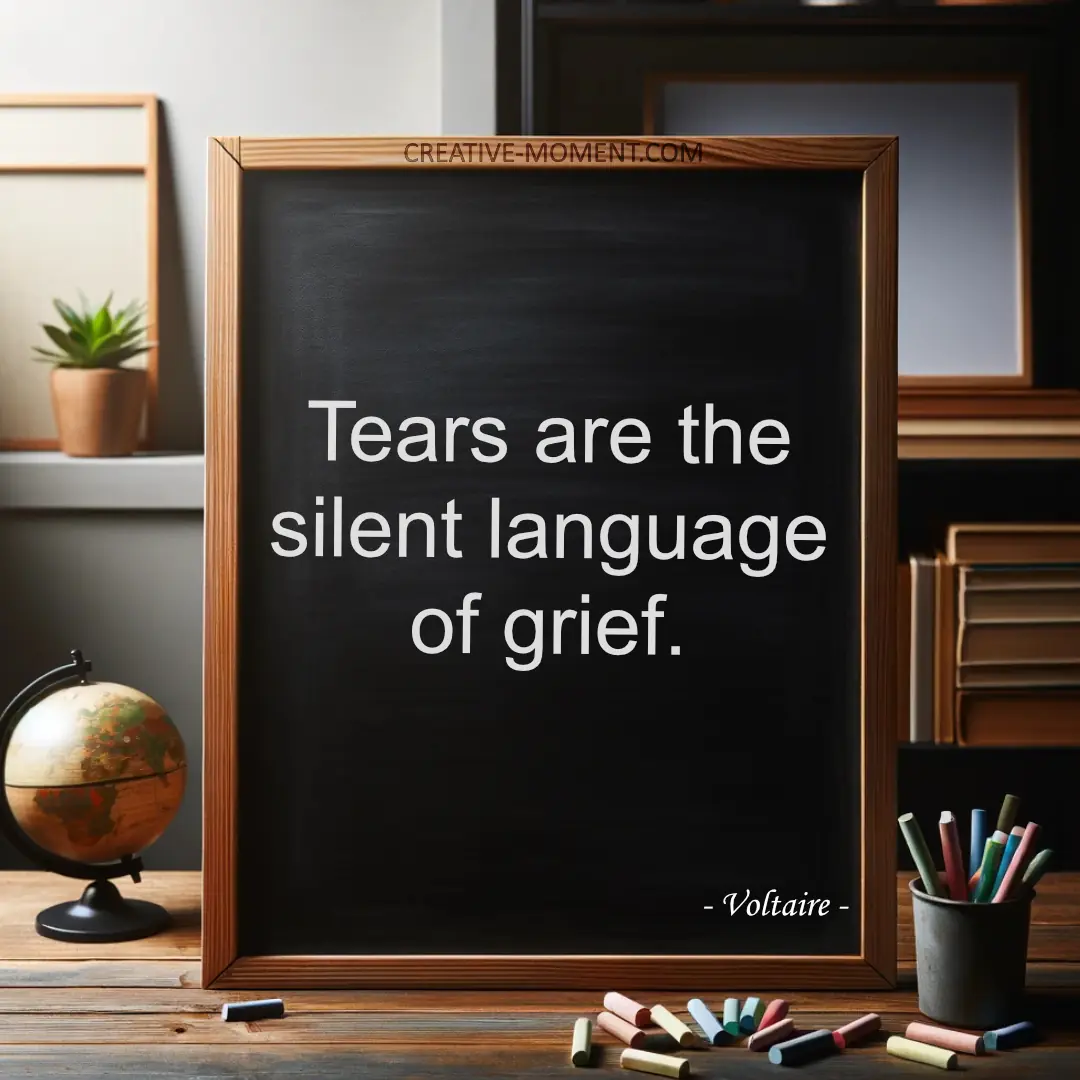Saying: Tears are the silent language of grief
Info
- Title: Tears are the silent language of grief
- Type: Sayings
- Category: Grief and Comfort
- Print: Download as PDF for printing
The well-known quote "Tears are the silent language of grief." originates from the French philosopher and writer Voltaire. In a few words, this statement aptly summarizes how humans express profound grief and pain without spoken words. Today, this saying is frequently cited to communicate feelings that surpass verbal expression.
Herkunft und Verwendung des Spruches
The French Enlightenment thinker Voltaire, born François-Marie Arouet, originally composed the quote in French: "Les larmes sont le langage muet de la douleur." It appears in a collection of his philosophical thoughts, aphorisms, and essays in which he examines human nature and the essence of suffering. Voltaire's words are often used at funerals or in eulogies to express emotions that seem inadequately served by words.
Bedeutung und Interpretation des Spruches
With this quote, Voltaire emphasizes the non-verbal expressive power of human emotions. For him, tears symbolize a profound feeling that language cannot adequately communicate. Grief is a complex emotional experience that often transcends verbal communication and reveals itself through tears.
Furthermore, the quote underscores the universal nature of grief. Regardless of culture and language, every human recognizes tears as expressions of loss, pain, and emotional turmoil. Therefore, tears constitute a common non-verbal language connecting people worldwide.
- Non-verbal communication: Tears allow the expression of deeply felt emotions that are difficult to articulate in words.
- Universal experience: The saying highlights grief and pain as human experiences transcending cultural boundaries.
- Authenticity of feeling: Tears are often viewed as authentic expressions of the inner truth and genuineness of grief.
- Emotional release: Crying functions as an emotional outlet through which people can alleviate psychological pressure.
Additionally, Voltaire implicitly conveys that grief often occurs privately, "silently," without grand gestures. Thus, tears are not merely expressions of pain; they also reflect human vulnerability and sincerity. In the silence of their language, the depth of feelings becomes especially clear and poignant.

